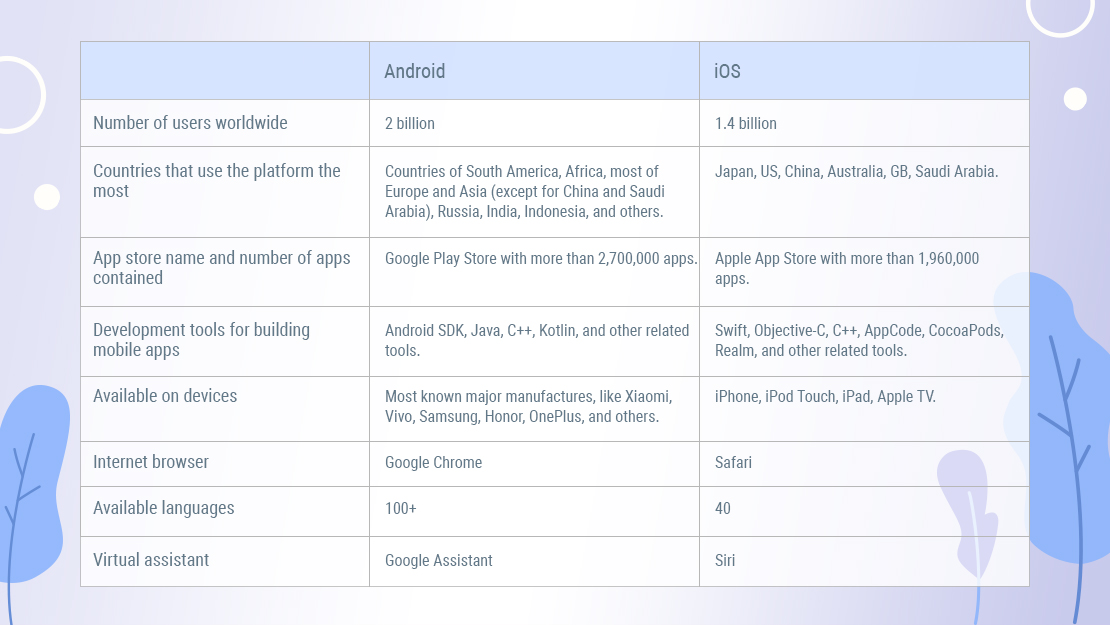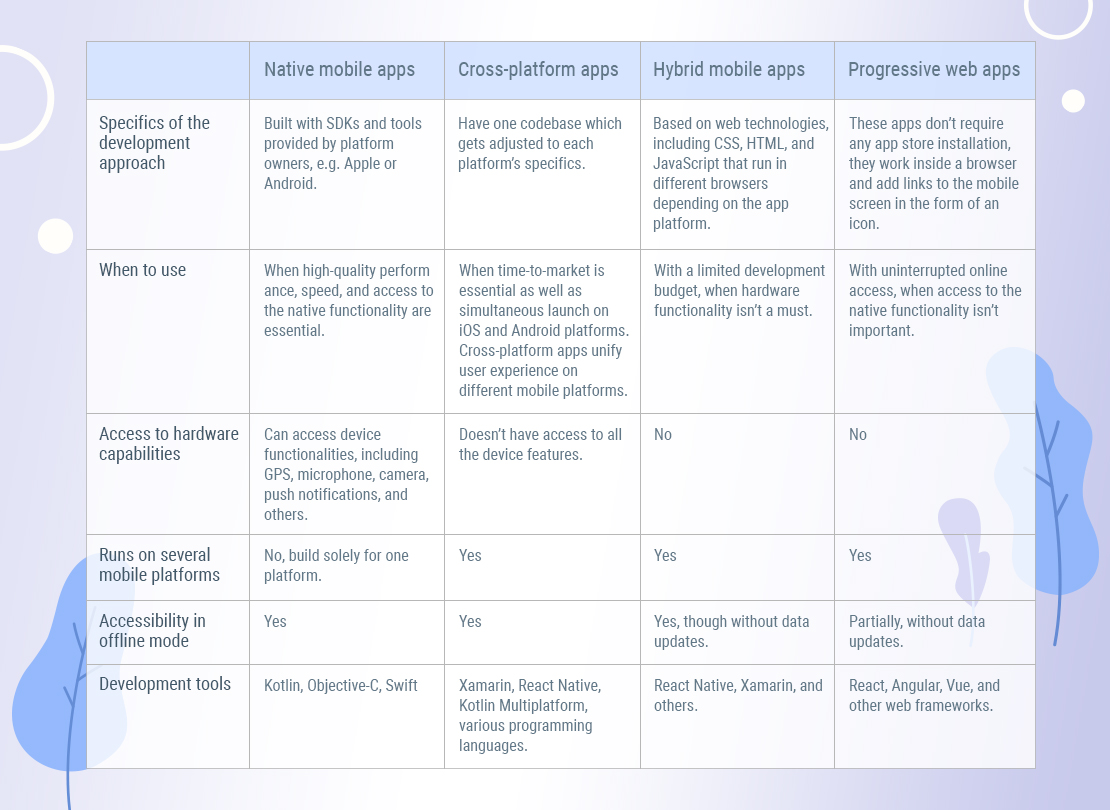How To Build An Effective Mobile App
One of the most effective ways to expand your business and build a solid customer base is to develop a business mobile app. Every year the number of smartphone users is growing. It’s reached more than 3.6 billion users around the world in 2020 and is expected to hit the 4.3 billion mark in 2023. This makes the mobile app market highly attractive and lucrative. According to Statista, the mobile apps’ revenue will cross $935.2 billion by 2023.
While these figures seem quite tempting, the number of mobile apps is also rapidly increasing. For example, Google Play Store alone placed 2.7 million apps in the second quarter of 2020, with 1 million surpassed in 2013. It means that competition in the mobile app world is extremely high. Building a successful mobile app demands an accurate selection of tools, approaches, and platforms. All these factors are based on the product and project requirements as well as the target audience.
In this article, we explain everything you need to know to build an effective mobile app and share our hands-on experience in the mobile application development sphere.
Mobile App Development Lifecycle
For the businesses considering building their own mobile app it’s important to realize all the steps, stages, and procedures their app will pass before the release. Knowing mobile app development lifecycle steps allows project stakeholders to:
- realize the amount of work performed at every stage and do better mobile app and project planning;
- more accurately allocate project resources;
- avoid possible hidden difficulties in the development steps;
- carefully choose development tools, frameworks, and other development solutions.
All the mobile development projects usually undergo the same app development steps, no matter the length, scale, or complexity of the project. They can be divided into the following stages.
-
Planning Stage
The planning stage involves the work of a project manager, a business analyst, and a technical writer. They do market research, business analysis, decide on the key features of a future app, and develop a detailed technical requirements specification for further development. These activities help to determine the app value, its return on investments (ROI), required budget for the development, and some others.
This stage is important as it provides the answers to the following questions:
- What’s the app’s main idea and purpose?
- Who’s the app’s target audience?
- How much will it cost to develop?
- How can this app benefit your business?
-
App Design and Prototyping
The prototyping stage is about building quick app prototypes and design mockups so that the app’s layout and functionalities would better meet the demands of its end-users.
Besides that, the app development team can first create a Minimum viable product (MVP) for a quick launch in the market to get fast feedback from real end-users and then decide which features to develop further and which ones to add or remove.
This stage helps to prevent further development bottlenecks, extended deadlines, or any mid-build changes that could affect the final product release time or project budget.
-
App Development
At this stage, the development team does most of the development work. The team develops the app itself, API layers, adjusts the app for different mobile platforms, connects it with other online services, embeds various technologies, and much more.
-
Quality Assurance
This stage is devoted to complete mobile app testing. QA engineers perform various types of tests to ensure the high quality of the mobile app. It means that a ready-for-release app has no major bugs, works properly, and is beneficial to the clients. For this, QA engineers test the mobile app on various devices, check the app on different screen sizes, verify if the navigation, menu, and buttons work well, and perform other check-ups.
-
App Release and Maintenance
This stage involves publishing the mobile app in the app stores, releases of the app’s timely updates, infrastructure maintenance, as well as provision of customer support services.
Mobile App Development Platforms
The choice of a mobile development platform is essential for the future app. Each platform defines development tools, practices, devices the app will run on, and even the potential users. Therefore, project stakeholders have to decide on the mobile platform at the Planning stage of the mobile app development lifecycle.
There are two most widespread mobile app platforms – iOS and Android. The two systems are quite similar in functionality, however, they have different app stores, software development kits (SDKs) and tools, and others.
Here is the table of the main differences between the two platforms.
Alternatives for Developing Mobile Apps
Apart from choosing the right mobile development platform, project stakeholders should take into consideration the mobile app development approaches. They define what platform the developed app will run on, which app-building tools a development team will use, the app’s capability, and some other specifics.
There are four major mobile app development approaches:
- building native mobile apps;
- development of cross-platform solutions;
- creation of hybrid mobile apps;
- building progressive web apps.
Each of these approaches has its benefits and shortcomings. Therefore, before opting for one, stakeholders should study their development project in detail and realize which suits them best.
Here is a quick comparison of these mobile app development approaches for your easy and informative choice.
Conclusion
Every year mobile apps are growing in their popularity and more and more internet users prefer using mobile apps when they consume services online. That’s why so many companies build their business apps using mobile app development services. They help companies to effectively increase customer experiences, expand their customer base as well as better support their inner business processes.
However, the creation of robust and effective mobile apps requires a precise selection of development tools and approaches. Businesses need to know how to choose the right mobile app development platform, tools, and development approach that suits their mobile development projects best. This will allow businesses to better meet their target audience’s requirements, keep the budget expenses low, and deliver their apps on time.












